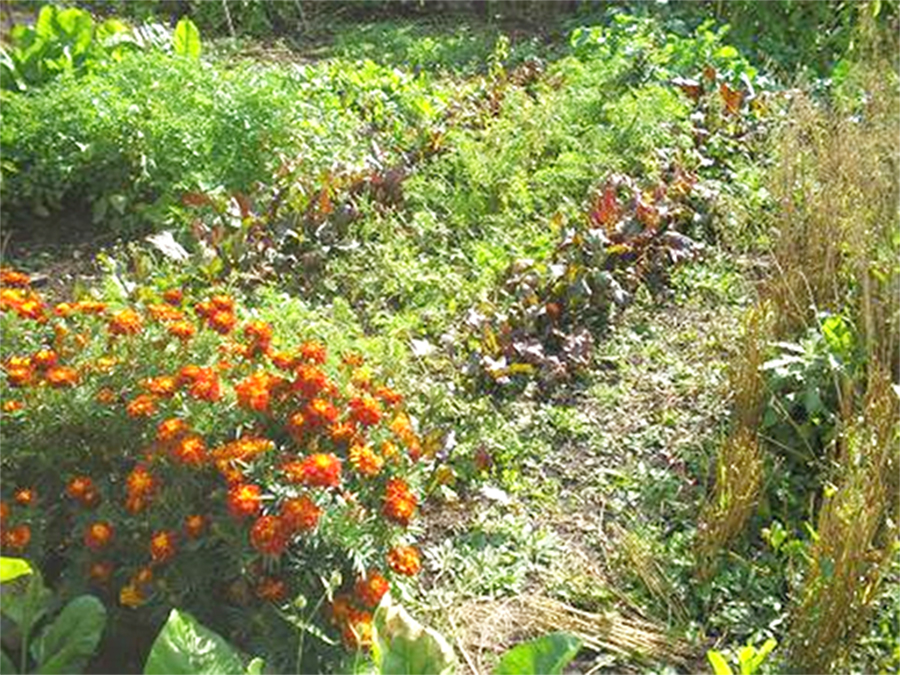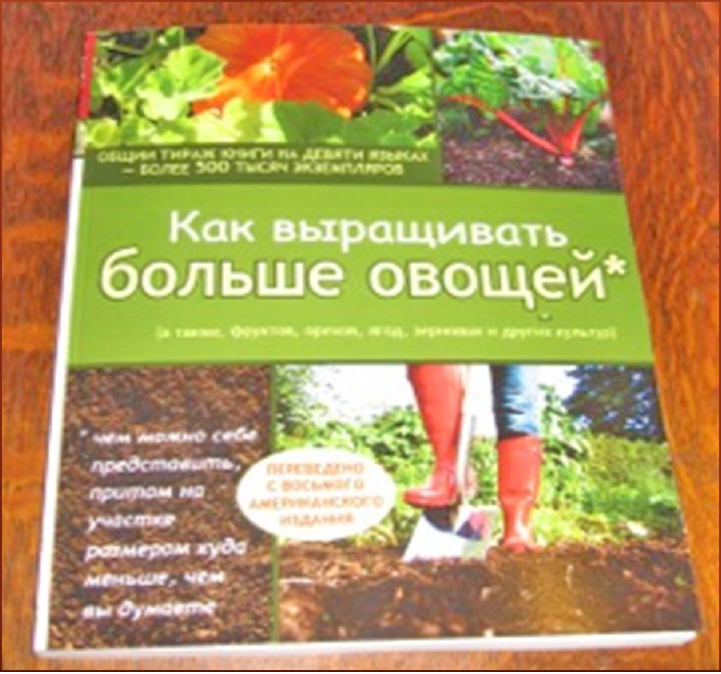The Latest from Biointensive for Russia
By Carol Vesecky, Director, Biointensive for Russia

Beets, carrots and marigolds in Natalya Koryagina's garden in Domashovo
PHOTO CREDIT: Natalya Koryagina
At last! The third edition of How to Grow More Vegetables in Russian has been published (via print-on-demand, here in the US). It took four years of translation, computer typesetting, editing, correspondence with electronic and print publishers, and troubleshooting. But we finally have a book and are sending them to our Russian colleagues to share with other teachers!
 Donations have helped us send three books each to our Russian colleagues in the Bryansk- Krasnodar area, St. Petersburg, and Kaliningrad. They'll share them with others who have taught GB or are interested in the method. Dmitry, our newest partner, wrote back: "THANKS!!! It's wonderful! Very useful and interesting!!" As we hear from more of the 50 in our Eurasia network, we'll continue to send books. Donations have helped us send three books each to our Russian colleagues in the Bryansk- Krasnodar area, St. Petersburg, and Kaliningrad. They'll share them with others who have taught GB or are interested in the method. Dmitry, our newest partner, wrote back: "THANKS!!! It's wonderful! Very useful and interesting!!" As we hear from more of the 50 in our Eurasia network, we'll continue to send books.
Paper versions are available from Bountiful Gardens for $20, or click here to download the eBook for $5 . Please pass the word on!
New partners in Kaliningrad: Our former longtime partner in Bryansk, Dr. Ludmila Zhirina of the NGO VIOLA, wrote recently about meeting Dr. Dmitry Filippenko, of the NGO Green Baltic, at a conference in Kaliningrad, the "exclave" Russian city and region on the Baltic Sea. Dmitry expressed interest in learning GROW BIOINTENSIVE, so I sent him electronic copies of our translations. He promised to try out the method this summer, then work toward holding workshops to be taught by Ludmila in Kaliningrad in the fall.
We're thrilled to collaborate with activists in this region where air defense systems have been installed to counter NATO's military buildup in its Baltic neighbor states. Having mastered the GB know-how we've shared with them, the Russians can pass it on to their Polish and Latvian neighbors, offering an example of cooperation that our leaders would do well to emulate!
2016 Bryansk experiment: With BfR's support this summer Dr. Igor Prokofyev and his NGO Grassroots Alliance PERESVET are testing the capacity of zinc and selenium in Biointensive compost to reduce lead and cadmium in vegetables. Due to the use of leaded gasoline in the past, lead is found in Russia in soils along roadsides where people grow food for their families.
As described by Igor, "Research suggests that adding Zn and Se to soils can reduce the harmful Pb and Cd that accumulates in vegetables. Zn and Se in soils are also believed to increase magnesium, manganese and other healthful minerals in vegetables...." A win-win! Please write if you're interested in receiving a list of articles on this topic or in joining BfR's email list.
Continued support needed: You are invited to help with donations: $25 provides a copy of HTG-R for a Russian teacher, $20 or more goes toward the cost ($1000 or more) of an inexpensive edition printed in Russia, and/or $20 or more toward the remaining cost of $400 for Igor's experiment. Checks should be made out to Ecology Action (with BfR on the memo line) and mailed to BfR, Mulberry Haven, 913 Oso Rd., Ojai CA 93023.
For more information, visit http://biointensiveforrussia.igc.org.
top | Newsletter Home | Article Index | Archive

|



 Donations have helped us send three books each to our Russian colleagues in the Bryansk- Krasnodar area, St. Petersburg, and Kaliningrad. They'll share them with others who have taught GB or are interested in the method. Dmitry, our newest partner, wrote back: "THANKS!!! It's wonderful! Very useful and interesting!!" As we hear from more of the 50 in our Eurasia network, we'll continue to send books.
Donations have helped us send three books each to our Russian colleagues in the Bryansk- Krasnodar area, St. Petersburg, and Kaliningrad. They'll share them with others who have taught GB or are interested in the method. Dmitry, our newest partner, wrote back: "THANKS!!! It's wonderful! Very useful and interesting!!" As we hear from more of the 50 in our Eurasia network, we'll continue to send books.